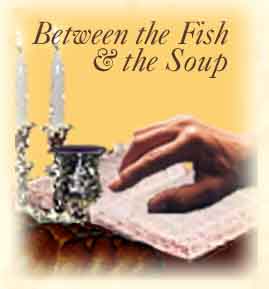
by Jacob Solomon
This Week's Parsha | Previous issues | Welcome
- Please Read!
e-mail: jacobsol@netvision.net.il
| It shall be when he hears the words of this curse, and he will console himself saying that it will go well with me, though I go in a way that my heart sees fit – thereby adding the watered on the thirsty (29:18).
The text of this passage is difficult to understand on a first reading. The context of above curse is idol worship. The passage warns the Israelites of the dire consequences of individuals, as well as whole communities, being tempted to follow the lifestyles of the Egyptians and other nations that they encountered and observed. The expression therefore adding the watered on the thirsty is understood by Rashi to be a metaphor. Thirsty refers to sins done intentionally – a thirsty person is still rational, and he seeks a way to satisfy his desires. Watered denotes sins done by accident – when someone has had too much too drink and becomes drunk, he is liable to sin without knowing what he is doing. So the sense of the verse is that in normal circumstances G-d treats leniently those who sin accidentally. But when an individual behaves in such a way that he believes that he may sin as he pleases, G-d holds him responsible for even unintentional sins. So the punishment for the unintentional sins is added to the intentional ones. This concept is illustrated by a well-know allegorical comment by R. Bunem of Psischka on the following section in Parashat Mishpatim:
If a person borrows (an object) from his friend, if his owner is not with him (and the object is damaged by any means whatsoever) he must pay. (However) if the owner is with him, he does not pay (compensation to that owner for the object) (Exodus 22:13-14).G-d, he explains, is our Owner. So long as we acknowledge His presence and our obligations to keep His commandments 'the owner' – G-d – is with us, and we are treated leniently for sins – 'damage to the objects' - done by accident. However once a person breaks the bond between himself and the Almighty, by saying that he will go in a way that my heart seems fit, he no longer has 'The Owner' with him. Therefore in the Final Reckoning he is held responsible for all types of sins - both intentional and unintentional. This discussion helps to distinguish between Sin and sins. One is held responsible for the former, but not necessarily the latter.
(Moses) said to them, "Today I am a hundred and twenty years old and I am not able to go out and come in, for G-d said to me. 'You shall not cross this Jordan' " (31:2).As Rashi points out, Moses did not say that he suffered from the disabilities associated with old age, for elsewhere the Torah itself (34:7) testifies that he was still as vibrant as ever. I am not able therefore meant 'I am not permitted by G-d'. This comment about Moses' youthfulness in his even extreme old age could help to explain the following apparent contradiction. In Psalm 92 it states: A righteous man will flourish like a date palm... planted in the House of G-d... they will flourish... they will still be fruitful in old age, vigorous and fresh they will be...(Psalms 92:13-15). However in Pirkei Avot, extreme old age is looked on less favorably... at the age of a hundred he is as if he is nothing, and already passed from the world (Avot 5:24). This contradiction could be resolved in the following way. A person who progresses through life in a positive and meritorious, but unexceptional way will pass through the various stages as mentioned in Avot (...at thirty one reaches full strength, at forty for understanding, at fifty for council, at sixty for old age...). But a very few outstanding, exceptional people with a powerful sense of mission - guided by the Almighty – will continue to 'produce fruit even into old age'. They will remain youthful, productive, and creative long past 'retirement age' – and they will still be able to keep up with the world in which they live, all the time using their ever-increasing experience to make it a better place. Indeed some of us can recall outstanding Torah personalities (as well as special individuals in beneficial, creative fields) who reached their peak in their seventies and beyond... Moses was the arch example of that type. As a true Servant of G-d (34:5) he directed the spiritual metamorphosis of the Israelites into a Kingdom of Priests and a Holy Nation (Exodus 19:6)...
e-mail:
jacobsol@netvision.net.il This article is provided as part of Shema Yisrael Torah Network For information on subscriptions, archives, and http://www.shemayisrael.co.il Jerusalem, Israel 972-2-641-8801 |